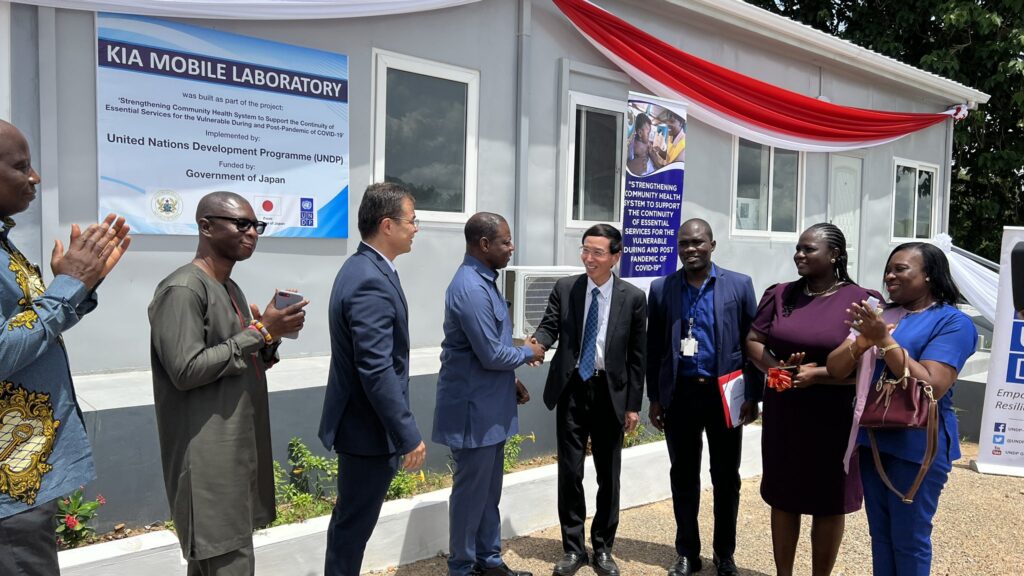UNDP, Japan hand over emergency reference lab to Ghana
 The United Nations Development Programme (UNDP) and the Japanese Government on Friday handed over a laboratory facility to Ghana at the Kotoka International Airport, Accra.
The United Nations Development Programme (UNDP) and the Japanese Government on Friday handed over a laboratory facility to Ghana at the Kotoka International Airport, Accra.
At a short ceremony, Dr Patrick Kuma Aboagye, Director-General Ghana Health Service (GHS), on behalf of the authorities of KIA symbolically received the facility, which is to support the effective management of public health emergencies.
The lab is one of four – three of which are to be commissioned at points of entry into the country, specifically, Paga, Aflao and Elubo.
It forms part of a $2 million project, including the construction of Community Health Planning and Services (CHPS) facilities in some underserved areas to strengthen community health systems and support the continuity of providing essential services to citizens.
The facility has polymerase chain reaction (PCR), sluice and phlebotomy rooms, a main lab for various case testing and management as well as a lab Manager’s office, kitchenette, changing rooms and washrooms to support daily operations.
Speaking at the handing-over ceremony, Dr Aboagye said the facility was timely in helping control public health emergencies at Ghana’s points of entry as it would support existing infrastructure and build people’s capacity to manage cases.
“In the last few years, we’ve had to respond to COVID, Marburg, laser fever and monkey pox, and Ghana has built capacity to test them. This facility will, therefore, help in our efforts to test for people who need to be tested for any other condition that may pop up,” he said.
“When the COVID started, we could only rely on Noguchi and KCCR and that’s not a statoscope that we want keep. So, these are part of a series of health system strengthening mechanisms going forward,” the Director General noted.
Sukhrob Khoshmukhamedov, UNDP Deputy Representative, indicated that point of entries played vital roles not only in transport, travel, trade and economic development, but equally important in health emergency response and recovery, as witnessed during the COVID-19 pandemic.
He explained that during health emergencies, points of entries served as critical centres of disease surveillance, risk communication, infection prevention and control, cross border coordination and information sharing.
As such, providing infrastructure, together with building the capacities of health practitioners and care providers would necessary to adequately address public health emergencies.
He noted that delivering on the promise to achieve the Sustainable Development Goals (SDGs) by 2023 would be impossible without commensurate investment in pandemic preparedness.
“UNDP as the UN’s foremost development agency firmly believes that being better prepared for future pandemic is a crucial component of human security,” hence the support to the project, Mr Khoshmukhamedov said.
He said investing in emergency preparedness was smart, responsible and necessary for a collective security and wellbeing of all people, and was hopeful that the lab would be a “vital resource and arsenal” in addressing emergencies in the future.
“The COVID-19 pandemic has highlighted not only the urgent health risks, but the importance of strengthening health systems to identify and respond to emergencies at all times,” said, Mochizuki Hisanobu, Japanese Ambassador to Ghana.
He noted that the availability of the labs at various entry points was a huge step forward in disease identification and surveillance management in the country, and contribute to achieving the Universal Health Coverage (UHC).
Source: GNA
